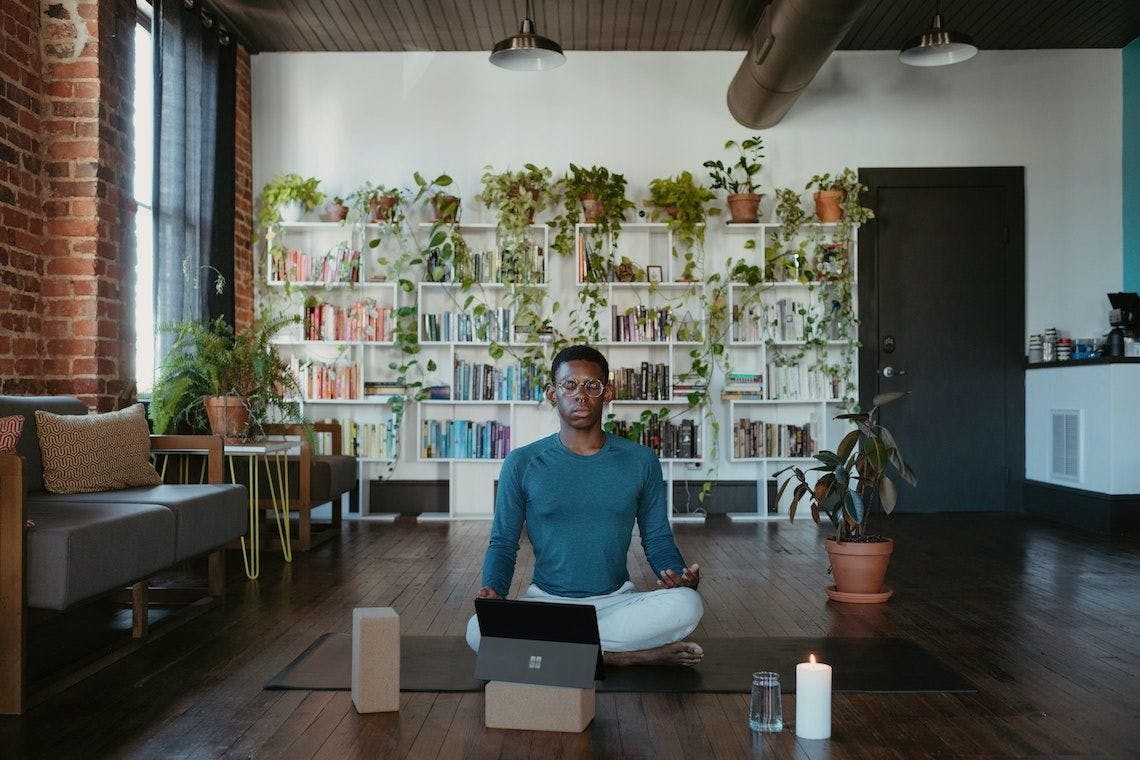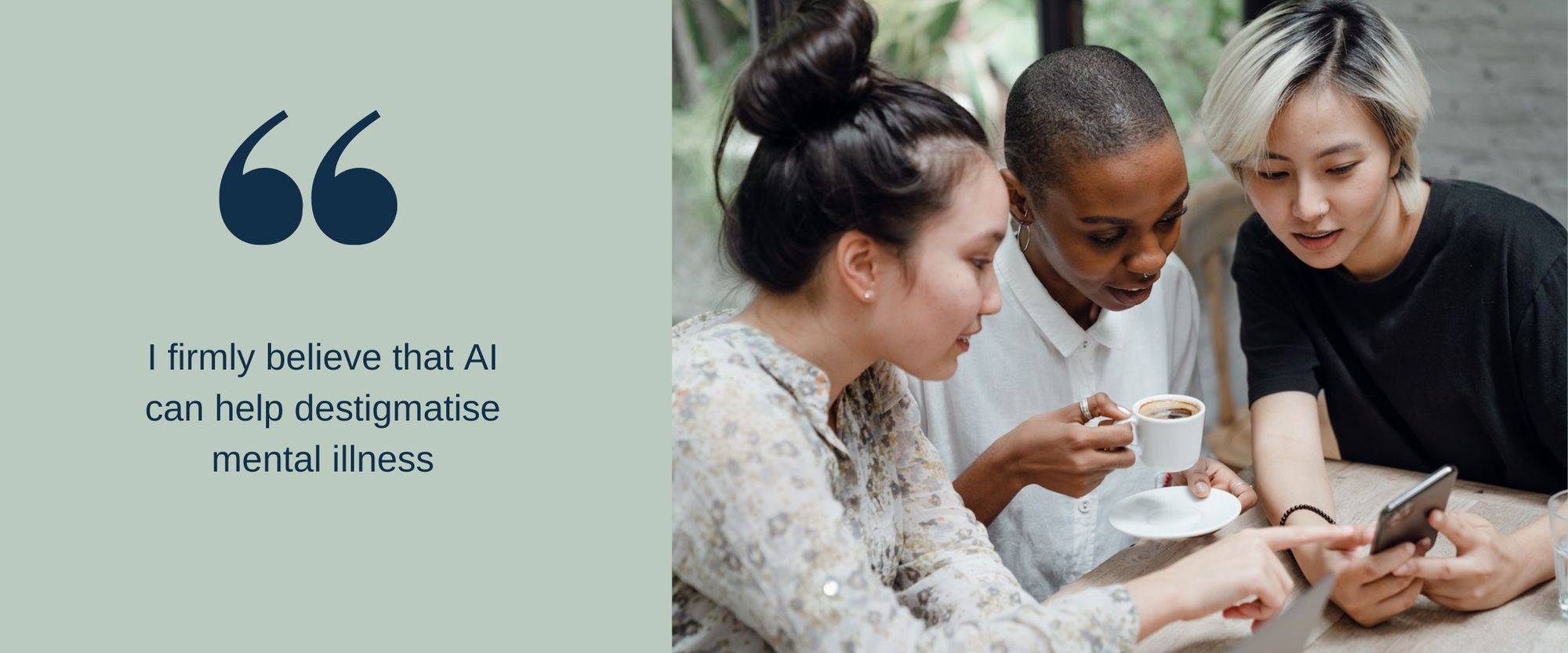Is artificial intelligence the future for healthcare and how can we benefit from it?
updated on May 3, 2023

AI is 2023’s hot topic, so what role could it play in health and wellbeing, and what opportunities and challenges should we be aware of?
What was once science fiction is now a part of our everyday lives, as artificial intelligence (AI) is something that many of us live alongside. According to Statista, in 2019, 3.25 billion virtual assistants were used worldwide – and that figure is predicted to more than double to 8.4 billion by 2024.
But AI is doing more for us than setting reminders, making recommendations, and offering us weather reports. In fact, it could be about to change the healthcare landscape entirely.
What’s out there?
According to a opinion pollsters Opinium, one in eight people use health apps regularly. And with an with industry specialists report estimating that there are now more than 350,000 health apps – from period-tracking apps like Flo, which can predict menstrual cycles when users input data, to the virtual reality nursing assistant Sensely – there’s a lot on offer.
Dr Emilia Molimpakis is a neuroscientist who co-founded thymia, a platform that uses AI-powered games to help doctors spot depression.
“I was inspired to start thymia after seeing my best friend struggle with depression,” she tells us. “I saw her try to go through the psychiatric system, and fall through the cracks. Despite being seen by therapists and a psychiatrist, she ended up trying to take her own life. When that happened, I was the one who found her, and this experience left a very deep impression on me.
“Aside from my own guilt at not recognising the signs sooner, what I could not get my head around was how her psychiatrist, who had seen her just two days before, did not see this coming. This prompted me to do a deep dive into the psychiatric system, where I realised that the tools clinicians had to hand were still these old-fashioned, pen-and-paper questionnaires that have been found, time and again, to be subjective, biased, and unrepresentative of a patient’s actual mental health status.”
But Dr Molimpakis didn’t just want to make things better, instead, she wanted to change the entire system. And so, thymia was born.
Dr Molimapakis points to how tools such as these have the ability to shoulder some of the pressure the NHS is currently facing, something that Dr Hana Patel, a GP who specialises in sleep and mental health, has seen first-hand with another AI initiative near her.

“In Surrey, Mind Matters Surrey NHS is currently using the Limbic Access chatbot that supports e-triage and assessments at the front end of the care pathway, acting as the first point of contact for the patient,” Dr Patel explains. The chatbot screens patients at the start of the process of being referred to the service. It can also be used as a self-referral tool, and has the ability to alert the mental health team to patients who may need to be signposted to other services, including acute care.
While Dr Patel highlights some cons worth noting – the frustration some people may feel at not speaking to a member of the mental health team straight away, and the challenges some may face if they are not IT literate, or have difficulty reading and writing in English – she predicts AI will play an increasingly important role in the healthcare of the future.
“It is going to be used more to help with the workforce issues and long delays to treatment following the Covid pandemic,” she explains. “It is also a positive change as NHS England is investing in AI for future-proofing the health service, and offering good quality care to all patients.”
What about wellness?
AI is also entering another arm of health, the world of wellness. And it’s an area that producer and writer Aaron Horn was keen to investigate for himself. Having first used AI to generate visuals for music, Aaron went on to experiment with using chatGPT to create yoga routines and guided meditations.
“I wanted to see, and be able to play with, a lot of parameters of guided meditation very quickly, and look for any recurring themes or archetypes,” Aaron explains. “Also, it was an opportunity to teach myself how to understand the essential elements of guided meditations, and therefore how to better understand them, and to be able to replace certain types of spiritual language with scientific and research-based language.”
Aaron shared one of his favourite AI-generated meditations with us.
. Visualise yourself standing at the entrance of a dark tunnel, with a small beam of light at the end. This tunnel represents the trauma you’ve experienced, and the light represents the hope and healing that’s waiting for you on the other side.
. Take a deep breath and start walking towards the tunnel. As you walk, feel your body getting lighter and your steps becoming more confident. Allow yourself to feel whatever emotions come up, but remind yourself that you’re safe and in control.
. As you move through the tunnel, you may encounter memories or images that are difficult to face. Acknowledge them without judgment and allow them to pass by. Remember that you’re safe and in control of your experience.
. As you get closer to the end of the tunnel, the light becomes brighter and warmer. Allow yourself to bask in this light and feel the warmth spreading throughout your body.
. When you reach the end of the tunnel, take a moment to rest and breathe in the healing energy of the light. Allow yourself to feel a sense of peace and calm.
. When you’re ready, slowly open your eyes and bring yourself back to the present moment. Take a few deep breaths and remind yourself that you’re safe and in control.
. Take a few deep breaths and allow yourself to fully relax, focusing on the sensation of calmness and relaxation throughout your body. Remember that you can use your voice as a powerful tool to promote relaxation and reduce stress, and that incorporating these simple vocalisations into your daily routine can have a significant impact on your wellbeing.
Aaron’s experiments with AI-generated meditations are an insight into what this technology might be capable of producing. But as we look to the future, what should we be aware of?
Handle with care
Before we dive in head-first, there are still questions we need to answer. As Dr Molimpakis points out, it’s vitally important that AI tools used in healthcare must be trained on a diverse data set that is representative of all groups of people. It should also be used alongside, and in addition to, professional care – not as a replacement. And, we should also consider carefully how our health data is stored and used. These are topics that both users and professionals have a responsibility to consider carefully.
However, with all that in mind, AI could still be a positively transformative tool.
“I firmly believe that AI can help destigmatise mental illness and improve access to care by bringing the diagnosis and treatment options onto a more equal footing with those available in physical healthcare,” Dr Molimpakis says. “AI could very well allow for a more objective and accurate mental health infrastructure to permeate every industry, so that everyone everywhere can have access to the support they need. And that would be truly life-changing.”

